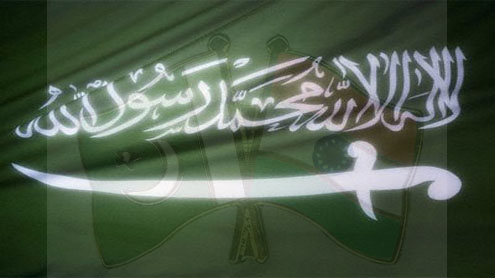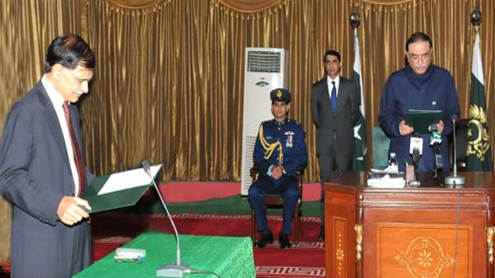
LAHORE: More evidence is emerging that Saudi Arabia is deepening its cooperation with India in cracking down on terrorism suspects, an important trend that has implications for Pakistan’s bilateral relationship with the kingdom, according to a report in the Wall Street Journal.
Pakistan is Saudi Arabia’s traditional ally in South Asia. Saudi money has fuelled the construction of hard-line religious schools in Pakistan that have helped foster militancy, the report stated.But Saudi Arabia also has been moving closer to India, Pakistan’s nemesis in the region. The latest sign came this week as Indian authorities confirmed Saudi Arabia had extradited Fasih Mehmood, an alleged member of Indian Mujahideen, a local militant outfit.
The WSJ reported India earlier this year had sought an international arrest warrant for Mehmood, who is from Bihar and is wanted in connection with an attack in 2010 on a tourist bus in New Delhi and a stadium in Bangalore. Earlier in October, Saudi Arabia extradited A Rayees, another alleged Indian militant, while it also extradited Sayed Zabiuddin Ansari, an alleged Indian member of LeT, in June.
India and Saudi Arabia signed an extradition treaty in 2010, one of a series of recent steps aimed at strengthening ties. Some observers view Saudi policy as driven by worries about the inability of Pakistan to control its militant proxies. Those anxieties have heightened in recent years as militants have increasingly attacked Pakistani government and military targets, according to WSJ.
“There’s a genuine concern in the Saudi establishment that things may get out of hand,” said Naresh Chandra, chairman of India’s National Security Advisory Board. Talat Masood, a retired Pakistan Army general, says Saudi Arabia now views its closer relationship with India as a way of forcing Pakistan to moderate its support for these groups. “The Saudi relationship is no longer a monopoly of Pakistan,” Masood said.For Riyadh, its ties with India offer another way to help balance the influence of Iran, a Shia power that has historically rivalled Saudi for influence in the Middle East and South Asia.
The US likely put pressure on Saudi Arabia to follow through with the recent extraditions, believes Ashok Mehta, a retired Indian Army general. “These extraditions wouldn’t have taken place without some pressure from the Americans,” he said. Attempts to reach the US Embassy in New Delhi were not immediately successful.The WSJ reports that others say, while important, the arrests don’t mean Saudi has ended its support for Pakistan.












